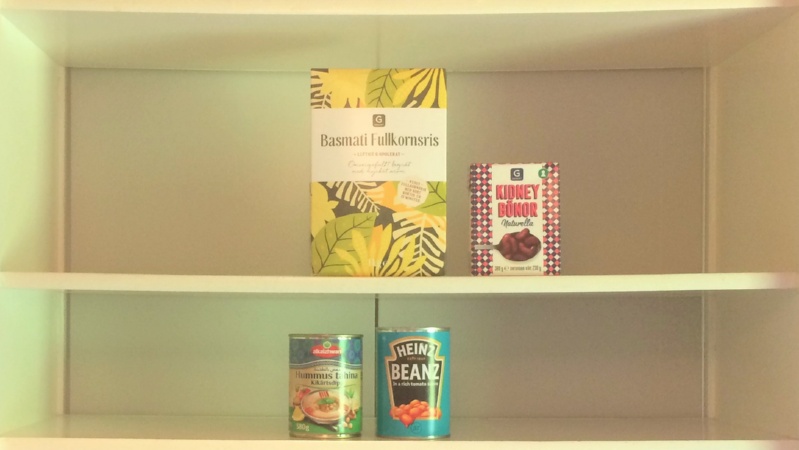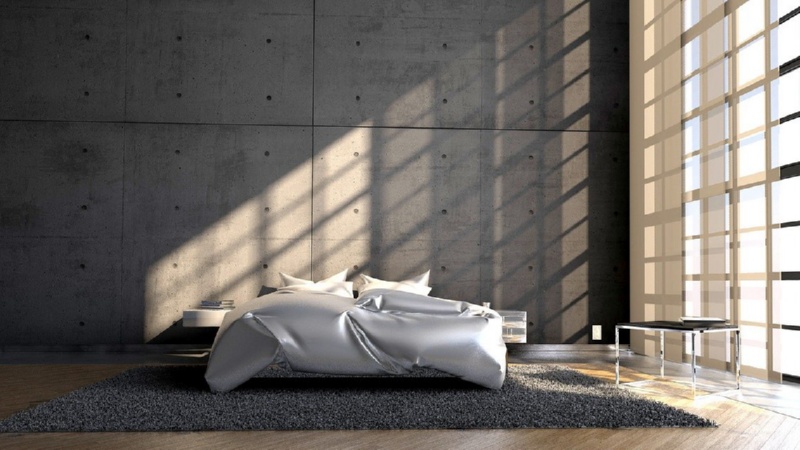Once upon a time, there were a boy and a girl. They desperately wanted to be free. Free from the grips of a consumer society. Free from a world where everything is run by large corporations that only promote consumerism so they can fill their pockets with money. And destroy the planet in the process. They searched for a long time but finally found the answer: they became minimalists!
Minimalism
min·i·mal·ism | \ ˈmi-nə-mə-ˌli-zəm
a style or technique (as in music, literature, or design) that is characterized by extreme spareness and simplicity
Definition of minimalism according to Merriam-Webster dictionary
Why minimalism is good for you
There are a number of reasons why becoming a minimalist can be good for you:
- It's better for your mind: you don't need to worry about all that stuff anymore
- It's better for your wallet: instead of buying all those unnecessary items, you can spend your money on worthwhile experiences
- It's better for your conscience: you are now responsible for less pollution, lower energy consumption, and a much smaller environmental footprint. So ultimately your lifestyle is better for the planet. Even more so if you are also vegan for life.
How we became minimalists
We did not realize we were minimalists until we watched the 2015 Documentary 'Minimalism: A Documentary About the Important Things' by two guys who call themselves the minimalists. The things they did, looked rather familiar to us. Cutting down on materialistic items, traveling very light, reducing our impact on the environment by refusing to be a 'normal' consumer... These were things we already did and apparently meant we were 'real' minimalists.
Our journey started a lot earlier though. Brenda and I both love traveling, so we move around a lot. Sometimes it is not practical to keep a house while traveling. It would just be too expensive. So often, we just ended the lease or sold our house. That meant we had to get rid of a lot of things. Until that point, we were also the sort of people who keep a lot of stuff in the house that 'might become useful later in life'. So every time we moved we had to get rid of a lot of stuff. Beds, furniture, kitchen appliances, household items, etc. The most 'valuable' items we tried to sell, but most of it we brought to charity shops.
Every time we returned the process would start again, when we needed things again to fill our house. However, every time we moved, we realized we needed a lot less stuff. After a while, we started to really learn what we need to make life practical and enjoyable. All the other stuff was just weighing us down.
Why minimalism is good for the rest of the world
Besides reducing the amount of stuff you own, being a minimalist is much more so about the mindset. It is about having a minimal impact on the environment and questioning mindless consumerism. We often forget that all that new stuff needs to be manufactured and transported, which costs tremendous amounts of energy and resources. So if you decide you really need something, look for it in a charity shop first. That way it gets a second life.
If you do plan to make a purchase, ask yourself how you can reduce the impact of that purchase. Buy local produce instead of food that is produced on the other side of the globe. Go for second-hand or a smaller item. Ask around if friends or family have items they don't use. Trade if you can.
For instance, if you are considering buying an electric vehicle, ask yourself if the car is really better for the environment. Electric cars are better for the environment than diesel or petrol cars, right? Well, that is only true if your current car is about to fall apart and needs to be replaced anyway. If your car is 4 years old, it is a much better choice to drive it for another 15 years, than to have a new car made for you. Even if that new car is electric. Just think about that.
There is no diploma for being a minimalist
If you want to become a minimalist, because you feel it is a lifestyle that would suit you really well, you have to follow your own set of rules. There is no guidebook with rules to follow. And nobody will hand you a diploma when you become a minimalist. There is nobody to judge your actions, you are your own judge. However, don't be too hard on yourself. You can do whatever you think is necessary to become a minimalist. Just get rid of the clutter, reduce your impact on the environment and start feeling lighter!
There are some basic principles though. The most important one is that you should not accumulate more things than you NEED. Think hard about all the things that you own and determine if you really need them. Would your life be empty without these things, would it become meaningless, would you really miss these items? Let me tell you a little secret, it's probably the other way around!
Telltale signs you might be a minimalist already
If you recognize any or many of these in yourself, you might already be a minimalist:
- Your house is clean of clutter, furniture is sparse.
- You don't own any storage space, your garage and attic are empty or filled with the bare essentials.
- You own few kitchen appliances. Those you do own, you use daily.
- You don't go shopping for fun. Or when you do, you mostly enjoy looking without actually buying anything
- You think really long and hard before buying something. More often than not, you decide NOT to buy something.
- You travel light. You take as many items for a year of travel around the world (and often even less) as others would when they are going away for a week.
The difference between 'needing' and 'wanting'
One of the key issues of being a minimalist is really understanding the difference between 'needing' and 'wanting'. You NEED something if that thing has a true purpose in your life. Food for instance, or clothing (up to a point) and a roof over your head. Those things are generally essential to make you feel content or happy. Things you WANT are things you can probably do without, but you buy them anyway, for various reasons. Maybe because your friends have it, and you need to have it too. Or you just love buying stuff, because you think it makes you happy. Often these items fill 'holes' that can be filled in a more meaningful way.
If your aspiration is to become a minimalist, every time you feel the need to buy something, ask yourself if you really, really need it. Most of the time the answer is NO.
What a person needs depends entirely on that person, it is not the same for everyone. I myself can perfectly do without a nice suit, but if your job requires you to dress up, you will probably have to get yourself a suit. You probably don't need one for every day of the week and you just don't need to buy a new one every 6 months.
Telltale signs you might NOT be a minimalist
If you recognize any or all of these in yourself you are probably NOT a minimalist at this point:
- You have more clothes than fit in your closet
- You have taken a bank loan to purchase household items (couch, TV, etc.)
- You have a storage locker to store your excess items
- There are plenty of things in your home you have not used for more than a year
- There is not enough space in your garage to put the car inside
- What is a charity shop??
- You cannot pass your favorite store without buying something
Our lives as minimalists
As I explained before, there is no guideline for becoming a minimalist. You do what you think is right. To give you an idea, this is what our lives as minimalists look like:
- We don't have a home to live in; most of the time we do long term house sitting jobs or rent holiday homes
- We do own a small vehicle (we decided we needed that to be able to maintain this lifestyle with house sitting and traveling); it's a tiny Suzuki, very efficient and cheap to run
- Nearly everything we own fits in the back of our car and travels with is (just some clothes, toiletries, Kindle and laptop); we have some surplus items stored at our parents (6 boxes, mainly clothing, kitchen stuff, tools) but we would not lose any sleep if that would all go up in smoke
- The only things we buy regularly are food (vegan of course) and some fuel for the car; we only buy new clothes if the old ones fall of our backs. 🙂 (but we somehow still look fairly presentable...)
- We try not to waste food and daily care items. After having done this for years we know exactly how much food and other stuff we need (washing powder, soap, etc.) if we are staying in a house for a few weeks. We use older veggies in soups or stews and eat leftovers for lunch. After a while, you get very creative inventing new dishes. 😉
- This lifestyle allows us to be in a lot of different places, most of the time with cute animals to look after. And because we don't spend a lot of money on rent and heating, we don't need to work full-time. This gives us a lot of (financial) freedom.
Being a minimalist will set you free...
If you get rid of a lot of stuff, it does not just clear up the garage and your house, it also clears up your head. Maybe you didn't realize it, but all that material stuff is weighing you down. It is stuff you have to worry about. Maybe these things will get damaged, maybe you will lose them. Without all those things you have a lot fewer worries, I promise you.
... but it can also be very addictive!
When we started our minimalist lifestyle it was pure for practical reasons. However, once we had repeated the process of getting rid of and acquiring a few times, we got really good at getting rid of things. It almost became a fun thing to do. It felt especially good to donate our things to a charity shop. Then at least you know that someone else, who's might be on a tight budget, will be able to enjoy those things and they won't go to waste.
Now minimalism has sort of become an addiction. I am always looking around at how I can get rid of any excess stuff that may be weighing me down. Sometimes it is as silly as putting the maple syrup in a smaller container (that just became available) to save space in the fridge. Just the simple pleasure of getting rid of something can really make my day.
How to proceed from here to become a minimalist?
If you think minimalism could be for you, just give it a try. You can take little steps at a time. You can start by going around the house and decide to get rid of some things that you don't really need. But watch out, once you have the 'minimalist' bug it is difficult to get rid of. In 6 months you might not have a lot of things left!
Let us know how your steps into minimalism have worked out for you!





